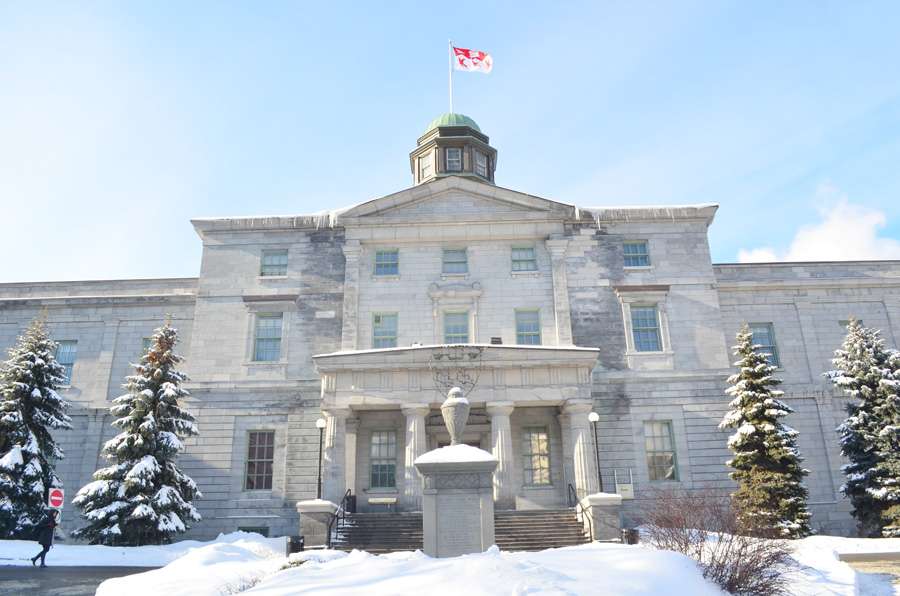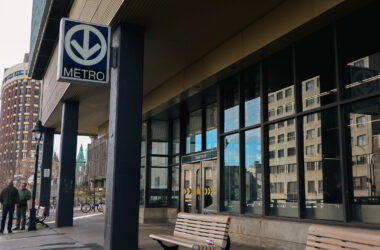McGill is a quintessential ‘take it or leave it’ school. Far from fully supporting its students, many of the institution’s realities make it unnecessarily difficult for students to succeed. Most emblematic, academic advisors are overworked because the need to serve as many students as possible in the shortest amount of time supersedes the quality of the services being provided. As a result, students have expressed that advisors are frequently underinformed about the issues most relevant to them because advisors do not have the time to research them. Similarly, student health services are notoriously deficient and inaccessible—a complex issue that has had consequences like McGill’s decision to cut funding for services such as its Eating Disorders program. Especially where mental health services or student disabilities are concerned, McGill simply does not have enough resources to serve its extensive student body. However, despite the challenges it poses, McGill’s laissez-faire approach fosters a particularly independent student body, something which the administration recognizes and for which it affords students certain privileges.
Government budget cuts are to blame for the university’s financial troubles, but this does not absolve the administration of responsibility. Not only do students have to deal with the various academic and health service issues stemming from McGill’s funding problems, students are forced to search for off-campus housing starting in their second year. Consequently, amid dealing with their academic pursuits while simultaneously grappling with the various issues plaguing McGill services, students also have to manage their own living circumstances earlier than students at some other Canadian and American schools. Being a student at McGill requires a high tolerance for bureaucratic impediments, administrative controversy, subpar services, and the ability to make do without any handholding from educational and administrative staff. However, these kinds of issues are ones that students will be forced to face after graduation. In addition to the difficulties that McGill’s hands-off style presents, it also benefits students by building their independence and resourcefulness.
One example of the extensive independence experienced by the student population is the scale of student government at McGill. The Students’ Society of McGill University (SSMU) and its affiliated societies—such as the Science or Arts Undergraduate societies—comprise a complicated bureaucratic web that is as sophisticated as the administration itself. By way of representation within SSMU, students devise their own constitution, internal regulations, and policies. SSMU oversees a budget of over $3 million, a significant financial responsibility considering that SSMU is student-run. The rights that the laws of Quebec afford SSMU and other student unions in the province are relatively unique compared to other universities. Moreover, the extent to which SSMU exercises these privileges has tremendous consequences for the university as a whole, as exemplified by their recent passage of a moratorium on auxiliary funding until the Board of Governors commits to divesting from fossil fuels.
“However, despite the challenges it poses, McGill’s laissez-faire approach fosters a particularly independent student body, something which the administration recognizes and for which it affords students certain privileges.”
The ability of student organizations to orchestrate events like the Open Air Pub (OAP), the Arts Undergraduate Society Bar (BDA) and Blues Pub also reflects the autonomy of McGill students in the same way that SSMU does. Such operations require immense logistical planning and force students to be mature organizers of large-scale events. The fact that the administration allows undergraduate societies to manage such events on campus, even allowing first-year residence councils and the Inter-Residence Council (IRC) to plan events with alcoholic beverages is telling. The administration expects McGill students to be mature and capable of managing their own affairs because they leave students with no other option.
McGill is imperfect, but perhaps it should be. This dynamic, and sometimes even contentious relationship between the administration and the student body, is educational for students. After all, the world is imperfect, and ideally, McGill prepares students to live in it. Ultimately, students often have only themselves and their fellow students to rely on for support. For better or worse, this ‘trial-by-fire’ approach is how students have and continue to endure the McGill experience. It is a reality responsible for the distinctive character of McGill’s student body, bringing it to life, and it is sustained by successive generations of students who continue to gravitate towards a lifestyle built on independence.










As a parent I only partially agree. When the lack of support in mental health, access to plain medical services with hours wasted waiting (just for an appointment for a fever), answering questions due to lack in funding office hours, are such that students have to consistently drop a class and graduate a year later the personal toll and financial consequences are huge (while the university gets the extra tuition).
On the topic of office hours, not all departments are created equal. Isn’t the Arts departments well behind Computer Science? Even as we badly need economists to figure out the Carbon Tax and behavioral changes to address climate change.
At least help students help each other when an undergrad needs a tutor (to make up for the gaps).